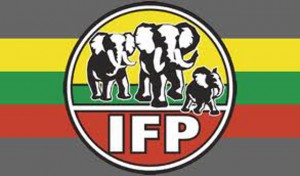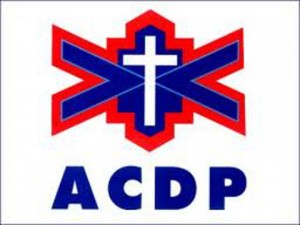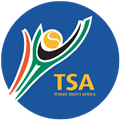Die kragkrisis in Suid-Afrika is die maaksel van Eskom en die ANC-regering. Dit is daarom hulle plig om dit op te los sonder om hierdie verantwoordelikheid oor te skuif na die verbruiker en die ekonomie deur die heffing van ʼn buitensporige tariefverhoging.
Hierdie boodskap vorm die kern van die voorlegging wat adv. Anton Alberts, die VF Plus se parlementêre woordvoerder oor energie, vandag gedoen het aan die Nasionale Energiereguleerder (Nersa) in sy versoek om nie Eskom se aangevraagde tariefverhoging goed te keur nie.
Hier volg die volledige voorlegging:
NERSA Submission in respect of the ESKOM Selective Reopener of MYPD3 Application
1. INTRODUCTION
The essence of our appeal is that the application of ESKOM is unlawful as it is done in contravention of Section 6(5)(b) of the ESKOM Conversion Act, 13 of 2001, which stipulates that the shareholders agreement between government and ESKOM must make provision for affordable electricity.
As we will indicate, no effort is being made by ESKOM to ensure affordable electricity for the country as a whole. We will deal with this problem under different headings.
2. MANAGEMENT PROBLEMS
a.The Independent inquiry into Eskom’s problems is not truly independent. It has recently come to light – partly because of a parliamentary question from the Freedom Front Plus – that Eskom has past dealings with the law firm Dentons that has now been appointed (by Eskom) to perform the inquiry.
Eskom will also play the role of overseer in the process. This implies that Eskom will actually investigate itself, and will have to act against itself, depending on the result of the audit. (See par. 2.b.)
b. The Eskom board has a history of making bad decisions, such as a lack of maintenance during the 2010 Soccer World Cup and the activation of unit 6 at Medupi without the required blow-through process that influenced the warranty on the unit. More examples are:
i. The board provided the aluminium industry in South Africa and Mozambique with cheap power even when they knew this extra capacity will be exhausted long before the contracts expired.
ii. They preferred huge power plants with units producing 800 MW each instead of following international practice by building smaller modules of 300 MW which is cheap and quick to build.
iii. They rejected the concept of gas plants when the Ibhubesi gas field on the West Coast was discovered, and were not interested in using gas from the Kudu gas field off the coast of Namibia or other natural gas that could have been imported. Gas power plants can be built within two or three years, and the capital cost is much less than for coal or nuclear power plants.
iv. The bonuses paid to Eskom directors in the current circumstances are immoral. Ten of Eskom’s top officials in 2014 received more than R10 million in bonuses and incentives over and above their R32,7 million in salaries.
v. The board plans to lay off a huge number of skilled white workers while the country is facing a crisis that was caused by a lack of skills. It was initially planned to lay off 3,400 skilled white workers by 2020 at the same time that deputy president Cyril Ramaphosa said in parliament that Eskom had to appoint more skilled people as part of the solution. It is incomprehensible and ridiculous.
3. MAINTENANCE PROBLEMS
a. The decision not to perform maintenance during the 2010 Soccer World Cup was poor. Unplanned emergency repairs prevent the planned switching off of units for vital maintenance work. This even affects construction work at Medupi and Kusile. Expertise is critical during this crisis, yet the opposite happens due to Affirmative Action.
b. The Dentons audit is not independent and will not reveal all the maintenance problems. The board of directors may change the report because they are reported to. Eskom awarded Dentons the contract of R22 million to do the audit, whilst at the same time they will play a supervisory role in the investigation. The Freedom Front Plus only recently established that Dentons benefited from the work it had done for Eskom in the past, although it was initially denied. This amounts to a conflict of interest as Dentons surely must consider that it will not be given additional work should a damning report be submitted.
c. Parliamentarians and the news media find it difficult to gain access to power stations for oversight purposes. At the same time alarming information is received about large-scale intimidation of cooperative workers and the destructive role that trade unions play in this process.
d. It seems that the Duvha boiler that blew up on 30 March would not be covered by insurance due to a lack of required maintenance. How many other future insurance claims will be declined due to his reason?
4. POWER GENERATION
a. Delays and the escalation of costs at Medupi and Kusile: Medupi should have been fully operational by 2013 and will now only possibly be ready by 2021. Strikes, unprotected strikes, excessive wage demands and the influence of the puppet masters – the trade unions – in this threaten to force the country to its knees.
b. Riots at Medupi with injuries and loss of life: Once again this should be seen against the background of trade union action. In the latest incident, two weeks ago, two workers who wanted to work, were shot. There were similar incidents last year.
5. FINANCIAL PROBLEMS
a. Eskom has a shrinking income pool that is not taken into account. The culture of non-payment has been allowed to flourish over 21 years and the paying clients – businesses and private users – are
forced to become independent and to create and use alternative energy sources. The exorbitant price increases now under discussion will contribute to this and the utility will inevitably find its market and revenue base will shrink considerably with the passage of time. THE QUESTION IS; HOW MUCH CAPACITY WILL ESKOM REALLY NEED IN THE FUTURE?
b. The savings on the maintenance budget for all the years of non-maintenance should be taken into account. The question is what happened to that money?
6. PROCUREMENT PROBLEMS
a. Diesel are probably purchased at premium price. If Eskom therefore wants more money from the consumer, evidence must be submitted that procurement take place at reasonable rates. The
contracts must be made public with the identity and details of the suppliers.
b. The BEE requirement for coal is 50% + 1 as the power crisis prevails. This is incompatible with responsible management. Eskom is also creating a Mine Development Fund to develop BEE coal mining. Affirmative Action once again plays a major role when emergency measures are needed. The question is where does the money come from? Eskom cannot afford such economic experiments at this moment.
7. RESULTS
a. The economy is brought to its knees and the cost amounts to billions.
b. Load shedding has already led to the deaths of several people in hospitals. Earlier this year, a man connected to an oxygen device died in a Bloemfontein hospital whilst a woman recently died in a hospital in Tzaneen when a diesel generator ran out of fuel.
In another incident an orphanage in Bethlehem was destroyed after candles caused a fire during load shedding.
c. Poverty increases and businesses struggle to survive. Many smaller businesses already had to close their doors with the consequent job losses. A survey among 112 companies in the textile, clothing and footwear industry with a total of 17,000 workers, shows that workers are placed on short time during
load shedding. Even a big company such as British American Tobacco (BAT) says it had lost as much as 10% of its South African production due to load shedding.
d. People, young and old suffer, especially when the cold of winter starts to set in.
e. Load shedding plays havoc with traffic, which amounts to a loss of thousands of working hours to the detriment of the economy.
f. Foreign investors increasingly become sceptical about South Africa and many observers believe Eskom’s problems are the first clear symptoms of a failed state.
8. CONCLUSION:
ESKOM and government are the creators of this mess. They must solve it without pushing the pain onto the consumer and the economy. A good start will be to privatise parts of ESKOM.









